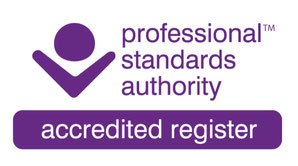Like a Highway Code for our inner world, feelings guide us, offering important information about our environment. When we feel safe, contented and hopeful, for instance, like a green light, our psyche is signalling it is safe to explore. When we feel threatened, our mind is sending an amber warning telling us to take heed.
How do we come to know and trust our feelings? In normal healthy development, our early caregivers help us to understand and regulate our feelings. Gradually, with the experience of another person attuned to our feelings, and a stable, predictable environment, we learn how to read our emotions and regulate them better ourselves.
But what happens if we haven’t been sufficiently guided to notice these internal signposts, or when trauma has impaired our ability to register and respond to our feelings?
Imagine learning to drive a car without a manual or instructor to help guide us to make meaning from the signs we encounter on the road. We need signs to warn us, or to communicate how to proceed safely. If we are unable to decipher these signs, the road environment becomes confusing and dangerous. If, blinded by trauma, we are unable to see the signs, collisions are inevitable. Yet this is how some of us will have had to navigate the uncertain and confusing terrain of our own emotional world.
For the child who has learned to avoid noticing her feelings, what does she do when she is faced with danger? Imagine she is approached by a stranger. Her ‘thinking self’ sees that his actions appear kind. Yet she feels anxious and scared. Her ‘fear’ is her emotional, cautionary signpost, telling her to seek safety. But if she has learned to ignore her feelings, she may not be able to notice this crucial signal. She is at greater risk of being harmed because she has lost touch with her inner protective part ~ her ‘emotional self.’
We are in dangerous territory if we ignore our feelings.
Sue Gerhardt tells us, in her book, Why Love Matters, “… emotional regulation… is about using our feelings as signals to alert the individual to the need for action, in particular to help sustain needed relationships.”
If our early caregivers were able to ‘feel’ with us in our infancy, to be affected, to contain our powerful emotions and to help give meaning to our feelings, and if we were protected from, or guided through, traumatic experiences, we will have been able to internalise this emotional regulation and use our feelings and the feelings of others as signs to help guide us.
However, if we have not been so fortunate, navigating relationships in our personal and professional lives will likely lead us to stumble into rocky and uncertain territory. We may experience trouble in our relationships, or experience problems with our mental wellbeing such as panic attacks, depression or addictions.
Not only do we need to learn to read our own emotional signposts, but in order to maintain relationships with others we need to be able to understand their feelings also.
Consider a child who is unable to have his sad feelings when a person he is strongly attached to dies. He finds a way to bury these feelings ~ signs that he is in need of loving care to help him mourn his loss. Later, if these feelings remain dormant and unprocessed, he may find his partner’s sadness around bereavement unbearable leaving both he and his partner alone and isolated with their grief.
Without our feelings, our interpersonal experiences become confused and troublesome.
How can we learn to better understand and regulate our emotions and become competent map readers of our inner world?
Psychotherapy can help us to learn how to notice and make sense of our feelings in a safe, non-judgmental space. Therapy that places value on the relationship between the therapist and the client allows us to grow through the experience of having our feelings understood and validated.
Therapy can enable us to learn how to better regulate our own feelings so that, in time, we can notice and react in healthy ways to our own, and others’, emotional signposts. Gradually, with patience and practice, we can begin to safely navigate through the up and downs of life with our own inner Highway Code.
References
- Gerhardt, S. (2014) Why Love Matters: How Affection Shapes a Baby's Brain. Routledge.



